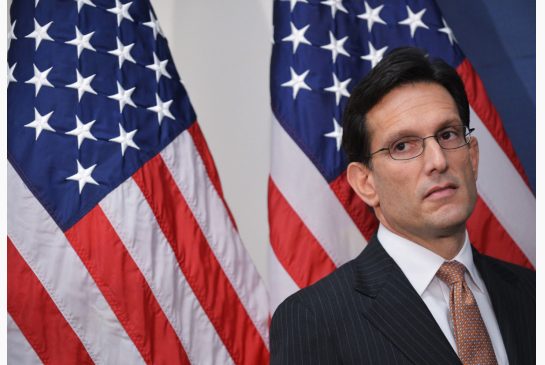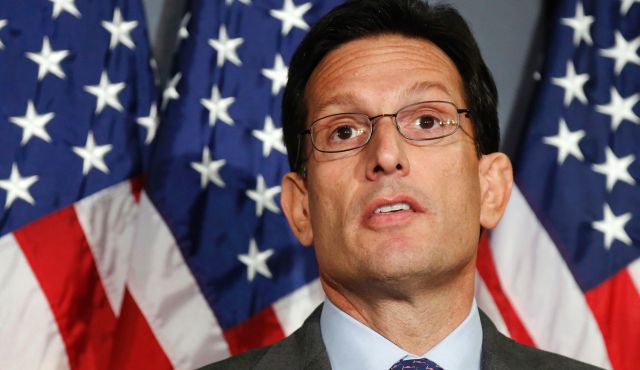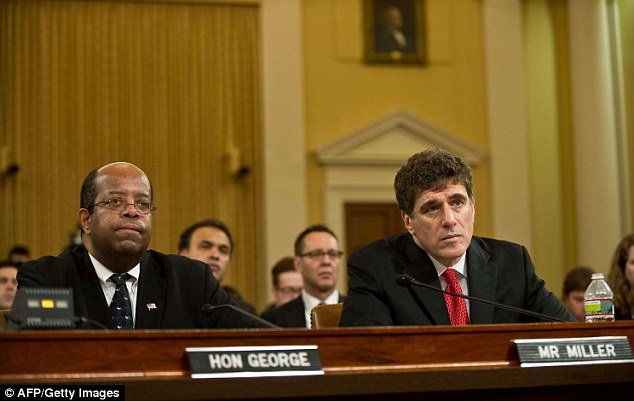Home Tags Posts tagged with "Tea Party"
Tea Party
Kentucky Senator Rand Paul has announced his 2016 White House bid.
The Republican wrote on his website: “I am running for president to return our country to the principles of liberty and limited government.”
Rand Paul stands out from the Republican pack because of his comparatively libertarian views.
He becomes the second Republican to enter the contest that concludes in November 2016.
A first-term senator hailing from one of the country’s most well-known libertarian families, Rand Paul first held elected office when he rode a wave of Tea Party popularity to the US senate in 2010.

Photo Reuters
Once there, Rand Paul soon drew attention when he spoke for more than 12 hours in protest about President Barack Obama’s drone policy and the nomination of John Brennan to lead the CIA.
He has proven to be a thorn in the side of many of his fellow Republicans, openly challenging them on issues such as government surveillance, drone policies and sanctions on Iran and Cuba.
Rand Paul has also questioned the size of the US military and proposed relaxing drug laws that lock up offenders at a high cost for tax payers.
It is not clear how successful Rand Paul will be amongst mainstream Republican supporters.
His father, former member of the US House of Representatives Ron Paul, ran several unsuccessful presidential campaigns that had strong appeal to libertarians who favor limited government and lower taxes.
Rand Paul is expected, however, to run a very tech-savvy campaign that could create appeal to new Republican demographics, like young voters.
He is due to make his announcement in person in a ballroom in Louisville, Kentucky, on April 7. He joins Senator Ted Cruz as the two most prominent declared candidates.
Rand Paul could face up to 20 other fellow Republicans doing battle for the nomination, including former Florida Governor Jeb Bush and Wisconsin Governor Scott Walker, both of whom are expected to enter the race soon.
The triumphant individual is widely expected to battle with Hillary Clinton, the Democratic favorite and former US Secretary of State.
Hillary Clinton has yet to officially announce her candidacy, but is expected to do so in the next two weeks.
Rand Paul attended Baylor University, but did not graduate.
He later attended Duke Medical School.
Rand Paul lives in Bowling Green, Kentucky, with his wife Kelly and their three sons.
[youtube 9DnbghBD4Qs 650]
John Boehner has survived a House rebellion by winning a third term as House speaker after Republicans took control of both chambers for the first time in eight years.
Twenty five Republicans voted against him.
At the top of the Republican agenda is approval of the Keystone XL pipeline, which was the first bill introduced.
Republicans won a majority in the Senate during November’s mid-term election.
They already controlled the House of Representatives.
They have been angered by recent unilateral actions by President Barack Obama including an executive action on immigration policy and a major shift in US policy on Cuba.

Photo AFP/Getty Images
Both chambers convened at midday, as required by the US constitution, after an early morning storm that left the capital city covered in snow.
“Hard work awaits,” said the new Senate majority leader, Mitch McConnell.
“I’m really optimistic about what we can accomplish.”
During prepared remarks on January 6, John Boehner said he wanted Barack Obama to work with Republicans on bills that have stalled in recent years.
He also criticized unnamed fellow representatives for “shadow boxing and show business”.
The first bill to be introduced was the approval for Keystone XL, a controversial oil pipeline extension on hold for years.
It may have enough support to pass a procedural hurdle in the Senate but on Tuesday, the White House has said Barack Obama would veto the legislation if it came to his desk.
White House spokesman Josh Earnest said the legislation undermined a “well-established” review process and did not take into account a lawsuit still pending in the state of Nebraska over the pipeline’s route.
President Barack Obama has used his power of veto twice in his six years as president, but has said he expects to use it more now that both chambers are controlled by Republicans.
Republicans are also set to take on Barack Obama’s immigration policy changes through a funding fight, legislation to repeal or defund the health law often referred to as “ObamaCare”, and fast-track a Pacific trade deal.
[youtube qXQxYiSVi_U 650]
Republican Senator Thad Cochran has narrowly beaten Tea Party candidate Chris McDaniel in a high-profile primary in Mississippi.
Thad Cochran, a six-term senator seeking re-election, had the backing of establishment Republicans but was forced into a run-off by Tea Party challenger Chris McDaniel.

Republican Senator Thad Cochran has narrowly beaten Tea Party candidate Chris McDaniel in a high-profile primary in Mississippi
The race was seen as a crucial test of the direction of the Republican Party ahead of midterm elections in November.
Moderate Republican candidates also won primary races in Oklahoma and Colorado.
Earlier this month, establishment Republicans suffered the shock defeat of former House Majority Leader Eric Cantor by a little-known Tea Party challenger in his Virginia district.
Senator Thad Cochran, 76, is expected to retain his seat in November’s congressional elections.
[youtube MMz3lqCR1KY 650]
According to Republican officials, House Majority Leader Eric Cantor intends to resign his leadership post by the end of July after losing Virginia primary election Tuesday night in a major upset.
Eric Cantor, who became the first House Majority Leader to ever lose a re-election, plans to step down from his leadership position by the end of July, according to the Washington Post.
The Post, citing “three Republicans familiar with his plans,” said that Eric Cantor will officially announce his plans later Wednesday at a meeting with colleagues.
On the morning after his loss to David Brat, an economics professor supported by the tea party, there had been quiet pressure on Eric Cantor to step down from his post as the Republicans’ second-ranking leader.

House Majority Leader Eric Cantor intends to resign his leadership post by the end of July after losing Virginia primary election
Others did not wait for him to make his intentions known.
Representative Kevin McCarthy of California was informing fellow Republicans he intended to run to succeed Eric Cantor, officials said, and Representative Pete Sessions of Texas also signaled an interest.
Representative Steve Scalise was hoping to replace Kevin McCarthy in his current spot, officials said.
Eric Cantor’s defeat was the first primary setback for a senior leader in Congress in recent years. Former House Speaker Thomas Foley of Washington and Senate Democratic leader Tom Daschle of South Dakota both lost their seats at the polls in the past two decades, but they fell to Republicans, not to challengers from within their own parties.
The outcome may well mark the end of Eric Cantor’s political career, although at 51 he has plenty of time to attempt a future comeback.
[youtube 5a6U8q7vtUc 650]
David Brat is the tea party’s new star after defeating House Majority Leader Eric Cantor in the biggest primary upset in recent memory.
David Brat, born on July 27 1964, gained a Ph.D. in economics at the American University in Washington, D.C., before going on to work as an economics professor at Randolph-Macon College, a liberal arts college north of Richmond, Virginia.
So dedicated is he to his profession that he canceled a packed schedule of meetings with key conservative activists in May because he had papers to grade.
“He had school stuff to take care of,” his 23-year-old campaign manager Zachary Werrell told the Washington Post. His Democrat challenger in the staunch-Republican district is Jack Trammell, also a professor at Randolph-Macon.

David Brat is the tea party’s new star after defeating House Majority Leader Eric Cantor in the biggest primary upset in recent memory
Before obtaining his economics doctorate, David Brat, a Catholic, received a Masters in Divinity at Princeton, a course designed to “prepare students for the parish ministry [and] mission work at home and abroad,” according its website.
He is anti-abortion and says he will always uphold laws to protect human life. These laws, he says, “come from God, the Author of Nature.”
Originally from Alma, Michigan, David Brat moved to Virginia in 1996 with his wife, Laura.
David Brat attended Hope College in Michigan and received a B.A. in Business Administration in 1986; he also graduated with a Master’s degree in Divinity from Princeton Theological Seminary in 1990 and earned a PhD in economics from American University in 1995.
After working for Arthur Andersen and as a consultant for the World Bank, David Brat became a professor at Randolph–Macon College (RMC) in 1996.
His published papers include God and Advanced Mammon: Can Theological Types Handle Usury and Capitalism? and An Analysis of the Moral Foundations in Ayn Rand.
David Brat is a Roman Catholic and is a parishioner of St. Mary Catholic Church in Richmond with his wife and their two children.
[youtube ZkuP5FCgueA 650]
Eric Cantor has lost a Virginia Republican Party primary election to David Brat, a challenger from the hard-right Tea Party movement.
Little-known economics professor David Brat defeated the second-ranking House of Representatives member 56%-44%.
David Brat’s shock victory exposed conservative dissatisfaction with Eric Cantor, who was first elected in 2000.
House Majority Leader Eric Cantor had been widely favored to win, having raising significantly more money than David Brat.

Eric Cantor has lost a Virginia Republican Party primary election to David Brat (photo Reuters)
David Brat attacked Eric Cantor’s record, including his support for some immigration reforms, and rallied enthusiastic members of the anti-tax, conservative populist Tea Party movement in the low-turnout race.
In a forewarning of trouble, last month Eric Cantor was booed at a meeting of Republican activists after a local party chairman whom he supported was removed in favor of a Tea Party candidate.
A lawyer, Eric Cantor, 51, was first elected to Congress in 2000 after serving nine years in the Virginia House of Delegates.
After the Tea Party emerged in 2009, he forged ties with the loose-knit movement, drawing on its support to help the Republicans take control of the House of Representatives the following year.
Eric Cantor was seen as representing a more conservative counterweight to House Speaker John Boehner, seen by some in the Tea Party as too conciliatory to Democratic President Barack Obama.
He was even viewed by some as possible successor to John Boehner.
David Brat will now face Democratic nominee Jack Trammell – also a professor at Randolph-Macon College – in this fall’s general election.
[youtube bQ6N2eC6X58 650]
A current Internal Revenue Service employee revealed during a closed-door interview with congressional staffers that the agency is still subjecting Tea Party groups with a level of scrutiny that it doesn’t apply to other applicants for nonprofit tax exempt status.
The news comes three months after the IRS was forced to admit it targeted conservative organizations with special screening based on ideological suggestive words in their names.
The employee, whose job entails evaluating new tax-exempt applications, told House Ways and Means Committee investigators that “secondary screening” is still employed inside the IRS because no one has told rank and file workers how to handle applications from Tea partiers.
Ways and Means chairman Rep. Dave Camp told the Washington Examiner that the continued targeting program is “outrageous”.
A committee aide added that “in plain English, the IRS is still targeting tea party cases”.
In an August 1 transcript released Thursday by Camp’s staff, a Ways and Mean committee staffer asked the newest IRS witness: “How do you analyze advocacy cases. If, for example, Tea Party of Arkansas came in today, how would you handle it?”

The IRS has faced angry opposition from conservatives since it admitted in May that it subjected tea party groups to more intense screening than it applied to other applicants for tax-exempt status
After clarifying that a previous “Be On The Lookout” list no longer targeted groups based on their names alone, the agent said: “If a political advocacy case came in today, I would give it – or talk about it to my manager because right now we really don’t have any direction or we haven’t had any for the last month and a half.”
The interviewer asked what would happen: “If today … a case from a tea party group came in to your desk, you reviewed the file and there was no evidence of political activity, would you potentially approve that case? Is that something you would do?”
“At this point,” the agent replied, “I would send it to secondary screening, political advocacy … based on my current manager’s direction.”
In an August 6 Washington Post op-ed, Camp and House oversight committee chairman Rep. Darrell Issa wrote: “The White House and its allies have engaged in a flailing effort to put this scandal behind them.”
But the new revelations will practically guarantee that the IRS scandal will continue to consume committee hearing time when Congress returns from its month-long recess.
“When the scandal was first revealed,” wrote Darrell Issa, “the president promised the American people that the administration would <<hold the responsible parties accountable>>. Yet upon the direction of the president, new IRS acting Commissioner Daniel Werfel ordered a 30-day review, upon which Werfel claimed the agency found no “evidence of intentional wrongdoing by anyone in the IRS.”
The White House, they claimed, “has vacillated between indifference and acknowledgment of inappropriate IRS behavior”.
“Consider this: On the same day President Obama bemoaned the <<phony scandals>> plaguing his administration, his chief spokesman, Jay Carney, allowed that <<we need to get to the bottom of what happened at the IRS>>. Which is it?”
[youtube CpTbUhBKsQw]
[youtube AXwiILANNMM]
Obama administration knew since June 2012 about an investigation into complaints from conservative tea party groups that they were being harassed by IRS, and the probe was ongoing at the height of the presidential race, a Treasury inspector general revealed Friday.
J. Russell George, the Treasury inspector general for tax administration, testified alongside ousted IRS head Steven T. Miller, who did little to subdue Republican outrage during hours of intense congressional questioning.
Both defiant and apologetic, Steven T. Miller acknowledged agency mistakes in targeting tea party groups for special scrutiny when they applied for tax-exempt status, but he insisted that agents broke no laws and that there was no effort to cover up their actions.
Steven T. Miller only stoked the criticism of many Republicans, who are assailing the administration on a sudden spate of other controversies, as well, even as some Democrats tried to contain the political damage.
“I don’t know that I got any answers from you today,” Rep. Mike Kelly, R-Pa., told Steven T. Miller.
“I am more concerned today than I was before.”
At one point in the day’s hearing, Treasury Inspector General Russell George said he had told the department’s general counsel about his investigation on June 4, 2012, and Deputy Treasury Secretary Neal Wolin “shortly thereafter”.
But, I.G. Russell George cautioned, those discussions were “not to inform them of the results of the audit. It was to inform them of the fact that we were conducting the audit”.
After the hearing, inspector general spokeswoman Karen Kraushaar said Russell George “informed Department of Treasury officials that we were looking into the IRS’ handling of applications for tax-exempt status, partly due to allegations raised by conservative organizations”.
Karen Kraushaar said the disclosure was part of a routine briefing about the office’s activities.
The Treasury Department issued a statement Friday saying officials first became aware of the actual results of the investigation in March of this year, when they were provided a draft of Russell George’s report, a standard practice.
Russell George’s disclosure came before the House Ways and Means Committee in the first of several congressional hearings on the matter. He was joined by Steven T. Miller, who spoke publicly about the controversy for the first time.
Steven T. Miller apologized for the actions of agents who singled out conservative political groups for additional, often burdensome scrutiny.
“First and foremost, as acting commissioner, I want to apologize on behalf of the Internal Revenue Service for the mistakes that we made and the poor service we provided,” he told the committee.
“The affected organizations and the American public deserve better.”
But members on both sides of the aisle were furious, and castigated him for the mismanagement and political gamesmanship the IRS engaged in on his watch.
Texas Republican congressman Kevin Brady had the harshest criticism for Steven T. Miller.
“Is this still America?” he asked him.
“Is this government so drunk on power that it would turn its full force, its full might, to harass, and intimidate, and threaten an average American who only wants her voice, their voices heard?”
“The American public deserves better,” Steven T. Miller agreed. But both he and Russell George insisted that no IRS employees engaged in political witch-hunting.
Russell George oversaw the year-long internal probe that ended in a report released Wednesday. It concluded that the agency used “inappropriate criteria” in selecting tax-exemption applications for closer scrutiny, but did not find any wrongdoing on the part of senior-level IRS officials.
Steven T. Miller concurred with that finding, blaming the problem instead on “foolish mistakes” while affirming that partisanship “has no place at the IRS”. He also insisted he did not deceive Congress, though he repeatedly failed to reveal the controversy last year when he was asked about it by lawmakers – even after he had been briefed.
“I did not mislead Congress or the American people,” Steven T. Miller said.
President Barack Obama announced his removal on Wednesday, as a scandal unfolded involving the IRS targeting hundreds of right-wing organizations for intense scrutiny based on keywords like “tea party” or “patriots” in their names.
He told committee members that before the episode became public, he had no contact with the Treasury Department, the White House or Barack Obama’s re-election campaign about targeting conservative groups.
“Absolutely not,” Steven T. Miller said.
He surprised committee members when he said “it is absolutely not illegal” for IRS agents to single out conservative groups for additional scrutiny.
“Please don’t get me wrong,” he added.
“It should not happen.”
Russell George, the inspector general, backed up Steven T. Miller’s assertion when he said the yearlong investigation did not uncover illegal activity.
“It is not illegal, but it was inappropriate,” Russell George said of targeting conservative groups.
Russell George’s report concluded that an IRS office in Cincinnati, which screened applications for the tax exemptions, improperly singled out tea party and other conservative groups for tougher treatment. The report says the practice began in March 2010 and lasted in various forms until May 2012.

J. Russell George, the Treasury inspector general for tax administration, testified alongside ousted IRS head Steven T. Miller
Agents did not flag similar progressive or liberal labels, though some liberal groups did receive additional scrutiny because their applications were singled out for other reasons, the report said.
Steven T. Miller wrote to IRS employees, however, that he was leaving at the end of his scheduled term in early June.
Ultimately, he conceded on Friday, he agreed to step down because responsibility for the IRS’s activities “stops at my desk”.
Committee chair Dave Camp, a Michigan Republican, stared down Steven T. Miller, saying that “this systemic abuse cannot be fixed with just one resignation”.
“And as much as I expect more people need to go, the reality is this is not a personnel problem,” Dave Camp maintained.
“This is a problem of the IRS being too large, too powerful, too intrusive and too abusive of honest, hardworking taxpayers.”
Sander Levin, the panel’s ranking Democrat, said the IRS and its employees “have completely failed the American people” by “singling out organizations for review based on their name or political views, rather than their activity”.
“All of us are angry about this on behalf of the nation,” the left-leaning Michigan congressman said.
Lois Lerner is the civil servant who heads up the IRS division in charge of evaluating charitable and other nonprofit organizations. Sander Levin called for her head.
“Ms. Lerner should be relieved of her duties,” he said.
“We must seek the truth, not political gain.”
In what Steven T. Miller called “a prepared Q-and-A” on May 10, Lois Lerner told an American Bar Association conference about a pending IRS Inspector General report examining the targeting of conservative groups inside the IRS’s Exempt Organizations section.
That admission started the media feeding frenzy that has spiraled into a full-blown scandal. The acknowledgement that Lois Lerner went to the event with the intention of publicly disclosing the IG report’s existence raised eyebrows on the congressional panel.
Illinois Republican Rep. Peter Roskam quizzed Steven T. Miller about a phone conversation he said he had with Lois Lerner about the planned disclosure, which Miller said was intended to coincide with a disclosure to Congress.
He agreed with Peter Roskam, however, that Congress wasn’t told at the same time a question was “planted” at the bar association conference.
“We called to try to get on the calendar of the Ways and Means Committee,” Steven T. Miller said.
“You called to try to get on the calendar?” Peter Roskam asked, incredulous.
“Is that all you’ve got?”
“It’s the truth,” Steven T. Miller responded.
Under questioning from California Republican Rep. Devin Nunes, Steven T. Miller said he would not commit to giving Congress his notes, phone records, and other evidence of conversations with Lois Lerner.
Devin Nunes reminded him that Congress could, and might, subpoena them.
Lois Lerner’s superior, Sarah Hall Ingram, was the most senior political appointee in charge of exempt organizations reviews during the years when the IRS was targeting right-wing groups. This year the Obama administration has elevated her to a position of authority over the tax implementation of the Affordable Care Act, the president’s signature health care overhaul.
Steven T. Miller called her “a superb civil servant”, and said he promoted her to her current position.
In a flurry of press releases, broadcast statements and tweets, conservatives have lashed out at Ingram, suggesting a level of corruption on her part that could compromise the fair and impartial implementation of Obamacare.
Sarah Hall Ingram “allowed and possibly encouraged the outrageous and discriminatory tactics toward Tea Party Patriots based on political ideology, clearly violating her supposedly unbiased office”, said Jenny Beth Martin, the group’s national coordinator.
“We … do not trust anyone who was involved in targeting tea party groups to administer the Affordable Health Care Act in a fair and equal manner,” Jenny Beth Martin added.
“We certainly do not trust Sarah Hall Ingram to be anywhere near our incredibly sensitive health care decisions. It appears the administration has rewarded her for allowing the discriminatory actions rather than disciplining her. She must be terminated or resign immediately for her disgraceful actions.”
In a stunning flashback moment, Louisiana Republican Rep. Charles Boustany played a video clip showing former IRS Commissioner Douglas Shulman testifying before the House Ways and Means Subcommittee on Oversight in March 2012.
“Can you give us assurances that the IRS is not targeting particular groups based on political leanings?” Charles Boustany, the subcommittee’s chairman, asked Douglas Shulman then.
“There’s absolutely no targeting,” the then-commissioner responded in 2012.
“This is the kind of back-and-forth that happens when people apply for 501(c)(4) status.”
Asked Friday if this was a lie, Steven T. Miller said: “It was incorrect.”
“But whether or not it was untruthful,” he continued, without reaching a conclusion.
“Why did you mislead Congress and the American people on this?” Charles Boustany asked.
“Congressman, I did not mislead Congress or the American people,” Steven T. Miller responded.
Washington Democrat Jim McDermott, a reliable liberal partisan, acknowledged that “the IRS stiff-armed us, basically, at best”, in past testimony, but defended the agency’s behavior.
Tax “examiners took a shortcut”, in the face of a flood of new applications for tax-exempt status, he said, “which they deeply regret”.
Still, he conceded that it was wrong to treat groups differently because of their political positions.
“As much as I dislike the right,” he said, “I think it’s wrong to be un-evenhanded in government application” of laws and regulations.
Paul Ryan, the Republicans’ vice presidential nominee in 2012, slammed Steven T. Miller for what he said was less-than-truthful testimony when he appeared before a subcommittee last year. Although he had been briefed by then about the problems with tax-exempt applications from tea party groups, he said nothing.
Steven T. Miller hid material facts from Congress, Paul Ryan said.
“How can we conclude that you did not mislead this committee?”
Steven T. Miller fired back: “I stand by my answers,” he said, adding that the word “<<harassment>> implies political motivation” on the part of IRS employees.
“There was no political motivation,” he insisted.
Washington Republican Rep. Dave Reichert picked up that thread when it was his turn to ask questions.
“Do you not believe it’s your job to provide us with the information that you knew?” he demanded.
“You’re a law-enforcement agency, for crying out loud.”
“I answered all questions truthfully,” Steven T. Miller responded.
“You’re not going to cooperate,” said Dave Reichert, dismissing him and moving on to question Russell George.
The hearing is the first in what will likely be a series of inquisitions from Congress about the IRS scandal, just one of the three hanging over the Obama administration.
The House Oversight and Government Reform Committee will hold its own hearing on May 22, taking testimony from Lois Lerner, former IRS Commissioner Douglas Shulman, and Treasury Deputy Secretary Neal Wolin.
New York Democrat Charles Rangel took issue with the Supreme Court’s 2010 “Citizens United v. Federal Election Commission” ruling, which he said created an environment that resulted in the IRS’s malfeasance.
The underlying problem, he said, was a resulting law “almost written for abuse”, as it prohibits Congress from interfering with 501(c)(4) groups’ political spending.
The Citizens United Ruling is generally credited with creating a flood of applications for tax-exempt status with the IRS, including hundreds from conservative groups hoping to capitalize on their newfound power to influence national politics with untraceable dollars.
“This is not <<Democrat or Republican>>,” Charles Rangel said.
“It relates to the integrity of the government.”
“We’re on the same side as far as determining how this happened.”
Charles Rangel told Steven T. Miller that he wanted the “tens of thousands of IRS employees [to] have the stigma of corruption taken away from them”.
“Whether this is criminal activity or a mistake,” the New York Democrat said.
“I don’t know.”
[youtube SteLOPkFb6Q]
Sarah Palin has left FOX News after her three-year run as a paid contributor to the conservative cable news channel.
“It’s my understanding that Gov. Palin was offered a contract by FOX, and she decided not to renew the arrangement,” the source told Real Clear Politics on Friday.
“She remains focused on broadening her message of common-sense conservatism across the country and will be expanding her voice in the national discussion.”
Bill Shine, an executive vice president at Fox, confirmed the news in a statement sent to the New York Times.
“We have thoroughly enjoyed our association with Governor Palin. We wish her the best in her future endeavors,” Bill Shine wrote.
It is unclear whether the parting was Sarah Palin’s choice. Multiple sources told the Times that the decision to end her contract was “amicable”.
The anonymous source who spoke with Real Clear Politics declined to say whether Sarah Palin would pursue a television contract with another news network.
SarahPalin became one of FOX’s leading political contributors, making frequent appearances across the news channel’s programming after she resigned from her role as Alaska’s governor in 2009.

Sarah Palin has left FOX News after her three-year run as a paid contributor to the conservative cable news channel
In 2010, FOX constructed a studio inside the Tea Party favorite’s home in Wasilla, Alaska, where her husband, Todd Palin, would occasionally take on the role of cameraman and producer during her live television appearances.
Sarah Palin’s relationship with the cable news channel owned by Rupert Murdoch’s News Corp. empire had seemingly taken several rocky turns in the past year, according to Real Clear Politics.
In a Facebook post during the Republican convention last August, Sarah Palin complained that FOX had cancelled “all her scheduled interviews tonight”.
Sarah Palin’s departure from the nation’s highest-rated cable news channel follows the departure of another former governor leaving a paid media gig.
Earlier this month, former New York governor Elliot Spitzer stepped down from his prime-time television gig at Current TV after the channel was acquired by Middle Eastern media giant Al Jazeera for $500 million.
[youtube OBLLlwSy3qk]
[googlead tip=”vertical_mic”]Republican Michele Bachmann, 55, won the Iowa Straw Poll Saturday, affirming her status as a top-tier candidate in the Republican race to challenge President Barak Obama in 2012.
Michele Bachmann received 28% of the nearly 17,000 votes cast. The Texas Republican, Ron Paul was close behind her with 27%. Former Minnesota Governor Tim Pawlenty came in a distant third with 13% of the vote, followed by former Pennsylvania Senator Rick Santorum with 9% and businessman Herman Cain with 8%.

Michele Bachmann received 28 percent of the nearly 17000 votes cast
[googlead tip=”vertical_mare” aliniat=”dreapta”]
The daylong political festival was the first indication of how these Republicans are faring with the Grand Old Party (GOP) base. Nine candidates were on the ballot, and voting ran for 6 hours on the campus of Iowa State University.
Voters came in from far and wide, some of the candidates organizing bus caravans to bring backers to the event. In the past the turnout has ranged from 14,000 to 23,000.
Free hamburgers and ice cream were provided and some candidates even paid the $30 entry fee for their supporters to vote in the Iowa Republican Straw Poll.
Sunday morning, it was the ultra-conservative Tea Party favourite Michele Bachmann who was doing the rounds of the talkshow studios on the big television networks, while the former Minnesota Governor Tim Pawlenty, a poor third, became the first hopeful to announce he was dropping out of the race.
For Michele Bachmann, who won 28% of votes cast, it was the latest success in a rapid rise from local politics to Republican frontrunner.
As the result emerged late on Saturday, Bachmann, standing on the steps of her campaign bus, shouted what has become her slogan, just as “hope and change” was for Obama.
[youtube _up_xLReV0w]
“You have just sent a message that Barack Obama will be a one … term … president.”
“I think what people see in me is I’m a real person, I’m authentic,” she said.
Michele Bachmann compared herself to Ronald Reagan, who is saw as one of the party’s giants by Republicans, in being guided by a core set of principles.
“I don’t compromise my core principles. That’s how you lead, you lead from principles.”
Bachmann’s weekend victory provides important momentum for her campaign and can expect an influx of financial support, but the bigger question for Republicans is whether her appeal can be broad enough to seduce enough voters in the November 2012 presidential election. Although there are eight declared candidates, realistically only three are still in the race: Michele Bachmann, former Massachusetts Governor Mitt Romney and the Texas Governor Rick Perry, who announced his candidacy on Saturday.
Although Michele Bachmann won the Iowa Straw Poll, her vote is soft, with many still undecided.
Sue Matejka, 65, reflects the fluidity of Iowa Republicans. She travelled the three hours from her home in Olin, Iowa, to Ames for the Straw Poll in a bus paid for by Tim Pawlenty but, despite accepting his largesse, had no qualms about voting for Michele Bachmann.
“I am undecided,” she said. For her, the overriding imperative is a candidate who will unseat Barack Obama.
“It is between Bachmann and Perry. I haven’t heard enough about Perry. What is on paper looks good. What he has done for Texans is good,” she added.
Michele Bachmann has risen fast since being elected to Congress in 2006. She has made the most of frequent appearances on television, particularly Fox News, where she is a favourite because of her ultra-conservative views.
She is one of the most high-profile figures, along with Sarah Palin, in the Tea Party movement. In line with Tea Party principles, she adopted a hardline position during the debt crisis, saying she would not vote for raising the national debt ceiling and on Sunday repeated her view that deep cuts in federal spending were vital.
But it is her views on social issues that helped secure her win in Iowa, one of the most socially conservative states in the country outside of the south. Before joining Congress, she prayed outside abortion clinics.
[googlead tip=”lista_mare” aliniat=”stanga”]
Michele Bachmann is also one of the most outspoken critics of homosexuality, co-owning with her husband, Marcus, a clinic in Minnesota where, according to an ABC report by an undercover team, counsellors encourage gay people to pray to get rid of homosexual urges.
“It’s a very sad life. It’s part of Satan, I think, to say this is gay. It’s anything but gay,” she said in a speech in 2004.
While such views on social issues go down well in Iowa, Republicans know such statements will alienate many of the independent voters who decide elections nationwide.
Bachmann’s biggest problem is the entry into the race of Texas Governor Rick Perry, who is a strong candidate. While Perry holds many of the same views as Bachmann on social issues, he said that while he is opposed to same-sex marriage in Texas, he thinks it is fine for New York, saying that is the prerogative of each state to decide. As governor of a state with the best record of job growth in the country, Rick Perry is better placed than Michele Bachmann to take on Barak Obama on the economy. Michele Bachmann acknowledged she cannot win on social issues alone and shifted the emphasis in her round of television interviews on Sunday to the economy.
“It will be an economics election.”
Rick Perry, who announced his candidacy earlier Saturday, came in 6th place with 3.6% of the vote, ahead of GOP front-runner Mitt Romney, former U.S. House Speaker Newt Gingrich of Georgia and former Utah Governor Jon Huntsman, all of whom didn’t compete in the contest.
The poll results are nonbinding, amount to a popularity contest and offer candidates a chance to test their get-out-the-vote organizations.
Michele Bachmann’s victory may provide a road map for the Iowa campaign heading into the caucuses that are just four months away. But the straw poll has a mixed record of predicting the winner of that contest.
In 2008, Romney won the straw poll, but the big news was the surprising second-place showing of former Arkansas Governor Mike Huckabee. Huckabee won the Iowa caucuses, but dropped from the race soon after. McCain, who eventually won the nomination, didn’t compete in the straw poll and finished in 10th place.
Meanwhile, Barak Obama, dropping in the polls and aware of the boost Republicans received from four days of campaign events in Iowa that attracted 700 journalists, heads off on Monday on a three days bus tour of the mid-west, including Iowa. A CNN poll last week put Obama on 47%, down from 52% in January. The White House election is 16 months away but he has a lot of ground to make up.










